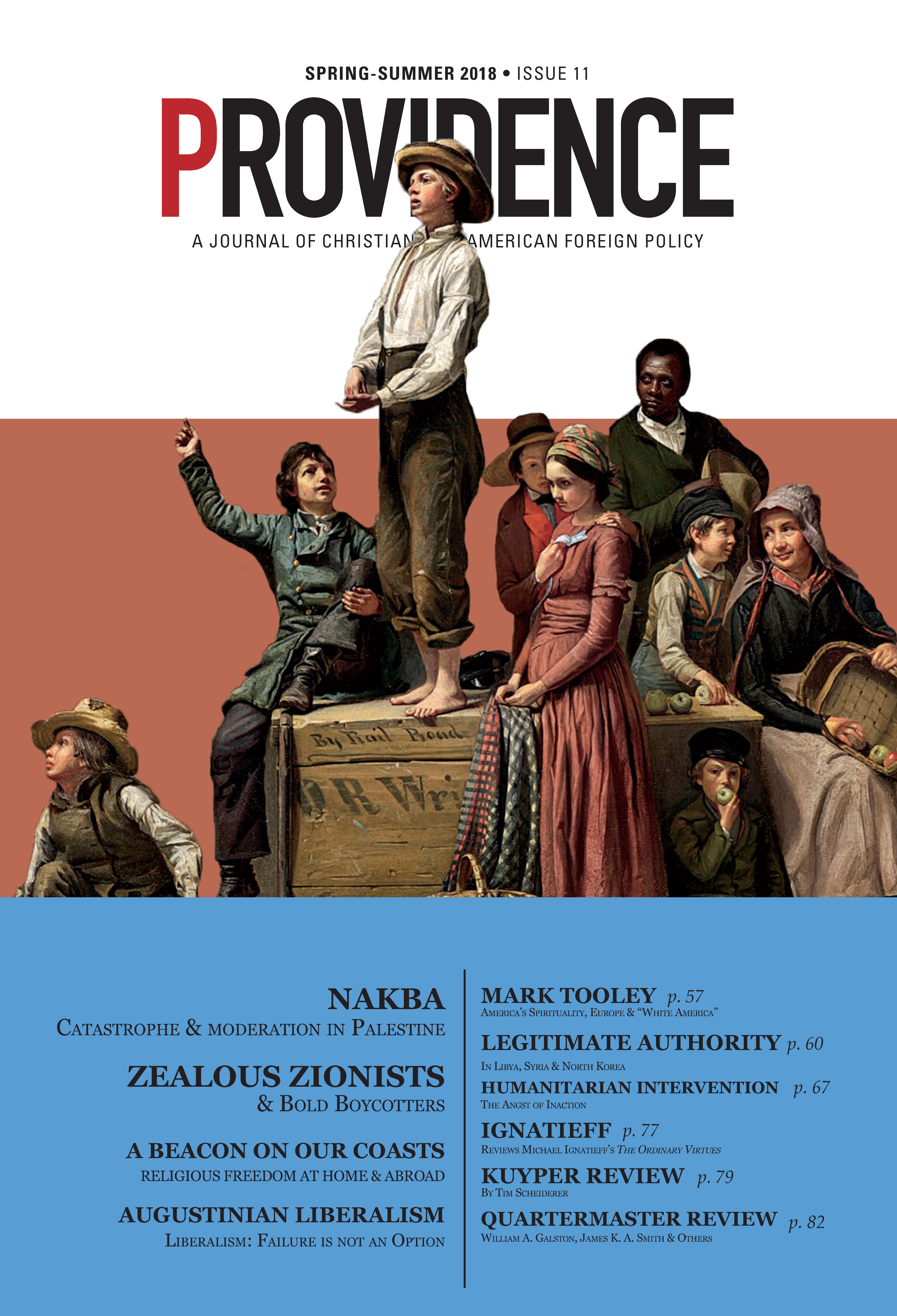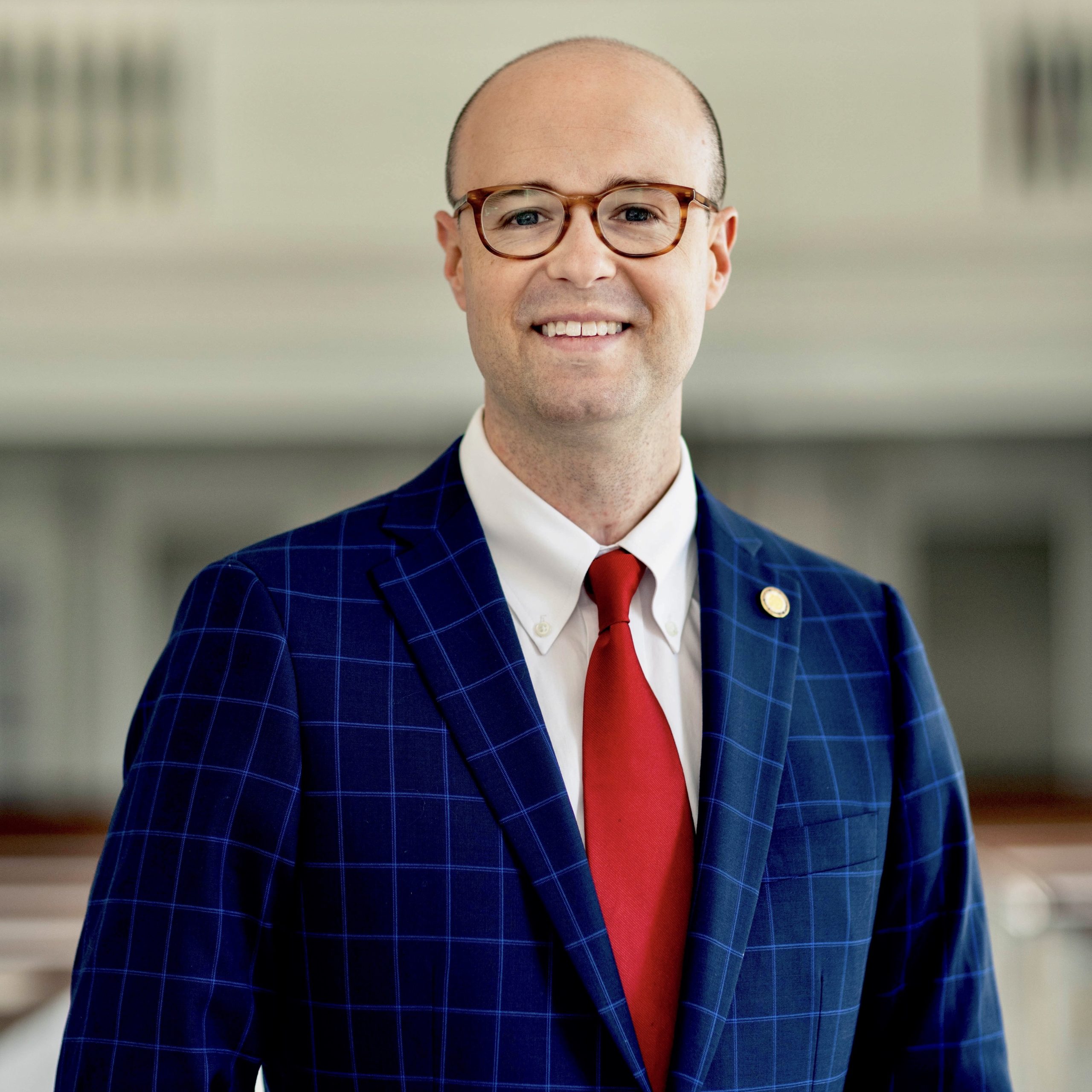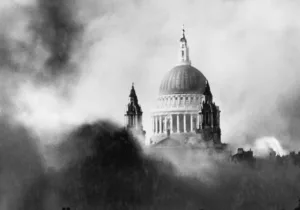To hear the critics’ recounting of liberal democracy’s flawed beginnings, it was the Spirit of ‘76 that gave us the moral chaos of Obergefell v. Hodges. From Rod Dreher’s Benedict Option and Patrick Deneen’s Why Liberalism Failed, to debates raging about Catholic Integralism’s desire for fusing both throne and altar, a growing number of Christian intellectuals wish to put liberal democracy in the dustbin of failed ideas and move forward.[1] Toward what, exactly, is unclear, but the liberal democracy dystopian narrative goes like this: Without a shared civilizational objective and vision around which civil society and government can unite, both the political order and political community are destined to fracture. Lacking, or even rejecting, a transcendental authority that imposes moral guardrails around society, the Enlightenment project of individual rights was doomed to hyper-individualism and relativism from the start.
In this essay, I want to argue that the bitter fruits of our decadent age are not the fault of liberal democracy but of human nature. In doing so, I want to situate the problems of our age along the storyline of Christian scripture with specific attention on eschatology’s role in deciphering what it means to live in a secular age and what ought to be expected for society’s moral commitments and the church’s mission as a result.
Assumptions & Enchantment
Implicit in the criticism of liberalism is the assumption that something—whether theological, political, or theo-political—can exist in the center of culture that will invariably resolve the tensions, decadence, and moral rebellion that tempt every political order. If the right God is worshipped or the right ideology obtained, human society will flourish. The “Utopians,” as I call this school, believe that a consensus point can be reached around a thick vision of the human good. Another implicit assumption I detect is the Utopians’ belief that both society and government can have this thick description of the human good privileged over other descriptions of the human good and, at some level, have this description of the human good instantiated in the culture and reflected in law.
The problem, however, is that this goal for a shared vision of the human good assumes some level of social homogeneity, a homogeneity that simply does not exist in the West. At root, before this vision for the human good can be actualized, it needs to deal with the fact that society is variegated; if the Utopians cannot do that, their vision stands no chance of gaining purchase to the point of consensus. Does evangelism deal with society’s diversity? Do Christian institutions build unity? How is the shared vision of the Utopians mainstreamed? How can a pluralistic society reach the critical nexus where it knows consensus has been reached such that homogeneity is achieved and a shared goal for the human good is thus actionable? If the complaints made by Dreher and Deneen are against liberal democracy, they should clearly state what their alternative vision for society is and how it can be achieved amid life in a pluralistic society.
It is important to grant the Utopians one argument: It is doubtlessly true that some zeitgeist exists and guides society. As a procedural matter, in an American context, democracy allows for laws to reflect cultural values. As a moral matter, expressive individualism, the sentiment that self-autonomy and self-actualization are the highest possible goods, runs pervasively through laws that legalize marijuana, divorce, abortion, same-sex marriage, assisted suicide, and transgenderism.
But ultimately behind the Utopians’ vision for society is a comprehensive claim of realized social harmony. While simple in explanation, this vision for society assumes a deeply complex set of affairs has been overcome. It assumes a vantage point about how society should govern itself and what it should expect from itself overall. But this scenario raises the question: Is it realistic today? Can we return to an age of Christendom?
The Utopians would tell you that such a vision for Christian society was the norm before the Enlightenment, for the world and culture were understood to be divinely enchanted and imbued with moral order. And liberal democracy, with its pretense of neutrality, has allowed immorality to slip into the mainstream as a result of said neutrality and is chiefly responsible for bringing the whole system down in a crashing halt. But my retort to that claim is that the pre-Enlightenment West was far less Christian than we are told. It might have had a Christian veneer at best, and that veneer might have restrained the actions of humanity. But it did not restrain the heart of humanity. This means even Christendom lacked the normative staying power to not fracture. To say the pre-Enlightenment West was authentically and regeneratively Christian is to engage in eschatological pronouncement—an over-realized eschatology of sorts. The Utopian goal for the idyllic society poses an eschatological claim about the normative conditions for society. And this narrative gets human nature wrong, tells fictions about history’s past, and complicates what Christians in the West ought to expect for the future by trafficking in the intoxicating drug of nostalgia. In what follows, I want to make an argument that an eschatological reading of history helps one better understand the secular age in which we live and sets more realistic expectations for what Christians ought to expect in an age where Christ’s reign is not yet in full.
A Secular Age
Constructing a better understanding of our present age begins with the imperium—the rule or reign of Jesus Christ. The present age in which the world finds itself is an age buffeted between Jesus’ resurrection and return. Those realities are the defining hallmarks that ought to authoritatively guide a Christian interpretation of history, the church’s self-understanding of its mission, and the cultural-political tumult that persists. In a theological sense, whether it is AD 438 Rome or 2018 America, both times reside in the same age—a secular age. It is Jesus’ resurrection and the promise of his return that legitimize a doctrine of secularity.
This is not the secularism of Christopher Hitchens or the Democratic National Convention. The secular age I speak of is a return to the original conception of secularity. This return to the original understanding of the secular age will better prepare Christians to know the age in which they live and to adjust expectations on the successes of Christian dominance.
By “secular” I am referring neither to broader trends within progressivism that attempt to harass and marginalize religious belief nor appeals to religious motivation from the public square, such that the public square becomes “naked.”[2] Rather, in keeping with the historical definition and Robert Markus’ summary of Augustine’s view, secularism is rooted in the saeculum, “in that intermediate and temporary realm in which human affairs unfold before the end.”[3] Or as David VanDrunen defines secularism, it is an “age preceding the second coming of Christ” or “the life of this present age that is distinct from the life of the age to come in the new creation” that authorizes a “common social space.”[4]
The secular age is the age that is passing away (1 Cor. 2:6; John 2:17). It is an evil age (Gal. 1:4). Notably, in keeping with the eschatological focus of this essay, Michael Horton argues that secularism is defined by “God’s different covenantal relationships in different epochs of redemptive history.”[5] He further elucidates how the secular age is not “nontheological” but is rather a “time in which cult and culture have not yet been reunited” and “creation, providence, and common grace” sustain it.[6] It’s important to catch that caveat: Horton is not declaring this age to be one of secular neutrality or “nontheological,” but simply an intermediate age. The intermediate age, as I argue, is one defined by moral revolt against God and his created order. And it will not last.
The secular age allows for a multitude of various religious and moral expressions to inhabit a shared cultural space together. Secularism is the recognition that not all has yet been brought under the functional lordship of Jesus Christ. Oliver O’Donovan aptly observed that “secularity is a stance of patience in the face of plurality.”[7] From this perspective, the secular age grants the theological legitimacy of pluralism as a feature of the social order, not a deviation. Again, this is not to argue that pluralism is an absolute, eternal good. It is not. As Markus notes:
The secular is that which belongs to this age and will have no part in the age to come, when Christ’s kingship will hold universal sway. Political authority and institutions, with all the agencies of compulsion and enforcement, are destined for abrogation when the rule of God in Christ is finally revealed.[8]
It would be even more accurate to “lament the reality of directional pluralism” in the saeculum, “even as it concedes that this is to be expected.”[9] This means the Utopian idea of shared moral consensus—or “Christendom”—presupposes an eschatological age that is not yet.
What resides in human nature has not changed from AD 1183 to AD 2018, and yet Jesus Christ remains the sovereign King over both eras of time. Sin is the human constant regardless of what year or millennium it is. The outgrowth of problems that we see amid liberal democracy are not the product of liberal democracy itself. They are the result of the human heart bent away from God and toward self-destruction. From Eden onward, the heart of man turns in toward itself—incurvatus in se. The Apostle Paul was deeply acquainted with the inner depravity of human nature (Rom. 7:15-25).
Michael Horton writes that “the earthly city is always Babylon—it is never converted, as are many of its inhabitants.”[10] This raises the ultimate question: If humanity is sinful, to what degree can it cooperate in totalized harmony? Only to a limited extent, which is why Christian natural law doctrine becomes a useful tool for determining a universally understood morality. Whether one calls it general revelation, natural law, or the covenant of creation, Michael Horton is correct to argue that the moral law—which is “written on the heart,” to use the Apostle Paul’s language—“provides an adequate norm for the temporal city even when it is not explicitly acknowledged.”[11]
A secular age, then, requires readjusting what ought to be expected as normative while living in it.
Conclusion
According to Augustine, the earthly city strives after a temporal earthly peace in order that humanity in society might prosper in itself, what Augustine calls an “ordered concord of civic obedience and rule in order to secure a kind of cooperation of men’s wills for the sake of things which belong to this moral life.”[12] Those belonging to the City of God likewise strive after an earthly peace, knowing their eternal hope is secured in Christ. The City of God uses the City of Man’s laws for the City of God’s own benefit, but for different ends.[13] This shared peace secures “a common sense of membership for Christian and unbeliever alike.”[14] The secular state is not the “neutral state” but merely a peaceful state. Neutrality as a theological principle is untenable. When the City of God and the City of Man strive toward mutual peace, “a harmony is preserved between them” pertaining to the conditions of life in a fallen world.[15]
Augustine then acknowledges that the City of Man is marked by great divergence as to religion. Crucially, he observes that, because of the diversity amid a penultimately secular era, “it has not been possible for the Heavenly City to have laws of religion in common with the earthly city.”[16] This is not to say that a nation’s laws are precluded from aligning with God’s moral law; rather, it is to acknowledge that the City of Man’s purpose in enacting law precludes it from prescribing laws directing humanity toward its ultimate religious end since government pronouncing what constitutes the religious end of humanity is outside its jurisdiction.
At times, the City of God must dissent from the gods of the City of Man, which may disturb the peace and provoke persecution. The City of God in Augustine’s framework continues to advocate for social harmony and prosperity to every length possible insofar as the laws do not “impede the religion by which we are taught that the one supreme and true God is to be worshipped.”[17] Here Augustine upholds the importance of the City of God’s free exercise. The City of God upholds the worthwhileness of social tranquility in whatever its context, striving after earthly peace. But for what end is the earthly peace ordered?
Indeed, she directed that earthly peace toward heavenly peace: toward the peace which is so truly such that—at least so far as rational creatures are concerned—only it can really be held to be peace and called such. For this peace is perfectly ordered and perfectly harmonious fellowship in the enjoyment of God, and of one another in God.[18]
According to Augustine, then, Christians make use of laws that benefit the mass of fallen society in order to facilitate humanity toward its ultimate end—fellowship with God. But this is a fundamentally cultural task and not civil. Augustine operates on two planes. He understands the integrity and purposefulness of earthly law for the prosperity and peace it offers inhabitants. Yet a deeper motive undergirds Augustine’s appreciation for the stability of law; namely, that Christians leverage social harmony or social tranquility for eternal purpose. Despite Christians possessing the fullest truth of religion, Augustine believes earthly cooperation and the maintenance of civil order that law provides should be stewarded toward humanity’s ultimate end: salvation.
Augustine’s view of social cooperation is thus instrumental. Christians take advantage of their contexts in order to advance their societies and ecosystems toward redemption. This happens while occupying the same saeculum, or secular age. How so? According to Robert Markus, “for the citizen of the heavenly city, concern for the saeculum is the temporal dimension of his concern for the eternal city.”[19] This means, in effect, that Christians are to “recognize penultimate convergence even where there is ultimate divergence.”[20] Christians are to cooperate where possible, while recognizing that the loyalties of the City of Man and the City of God are at an unbridgeable impasse. An awareness of ultimate divergence does not cordon off the state and its policymakers from the claims of the gospel. While an entailment of this essay means that governments should not be religiously confessional, that does not omit the reality that legislators and policymakers bring their own religious and ideological commitments to the task of governing that are far from neutral.
The apocalyptic handwringing that goes with the critics of liberal democracy is hardly apocalyptic enough since it fails to consider how the coming apocalypse will once and for all bring to an end every rebel thought. In the meantime, in that interim era where society is normatively variegated, the church must interrogate society’s commitments, or as Lesslie Newbigin writes, “it is the duty of the church to ask what those beliefs and commitments are and to expose them to the light of the gospel.”[21]
For now, let us cling to liberal democracy as a common grace
of God. If God in his providence gave us modernity, let Christians be the
stewards who use the freedoms of liberal democracy for the sake of the gospel.
[1]Other critical voices of liberal democracy, though not all for the same reasons, include Stanley Hauerwas, John Milbank, Alasdair MacIntyre, and Oliver O’Donovan.
[2] For discussion on the impact of secularist attempts to banish religion from public discourse, see Richard John Neuhaus, The Naked Public Square: Religion and Democracy in America, 2nd ed. (Grand Rapids, MI: Eerdmans, 1988).
[3]Robert Markus, Christianity and the Secular (Notre Dame, IN: University of Notre Dame Press, 2006), 73.
[4] David VanDrunen, Divine Covenants and Moral Order: A Biblical Theology of Natural Law (Grand Rapids, MI: Eerdmans, 2014), 515.
[5] Michael Horton, “The Time Between: Redefining the ‘Secular’ in Contemporary Debate,” in After Modernity? Secularity, Globalization, and the Re-Enchantment of the World, ed. James K. A. Smith (Waco, TX: Baylor University Press, 2008), 46.
[6] Ibid., 52.
[7]Oliver O’Donovan, Common Objects of Love: Moral Reflection and the Shaping of Community (Grand Rapids, MI: Eerdmans, 2002), 63.
[8]Markus, Christianity and the Secular, 14.
[9]James K. A. Smith, Awaiting the King: Reforming Public Theology (Grand Rapids, MI: Baker Academic, 2017), 32.
[10]Michael Horton, “The Time Between: Redefining the ‘Secular’ in Contemporary Debate,” 53.
[11]Ibid., 46.
[12]Augustine, The City of God against the Pagans, ed. R.W. Dyson (Cambridge, UK: Cambridge University Press, 1998), 945.
[13]Ibid., 946.
[14]Robert Song, Christianity and Liberal Society (New York: Oxford University Press, 2006), 171.
[15]Augustine, The City of God, 946.
[16]Ibid.
[17]Ibid., 947.
[18]Ibid.
[19]Robert Markus, Saeculum: History and Society in the Theology of St Augustine (Cambridge, UK: Cambridge University Press, 1989), 102.
[20]Smith, Awaiting the King, 218.
[21]Lesslie Newbigin, Foolishness to the Greeks: The Gospel and Western Culture (Grand Rapids: Wm. B. Eerdmans, 1988), 132.







